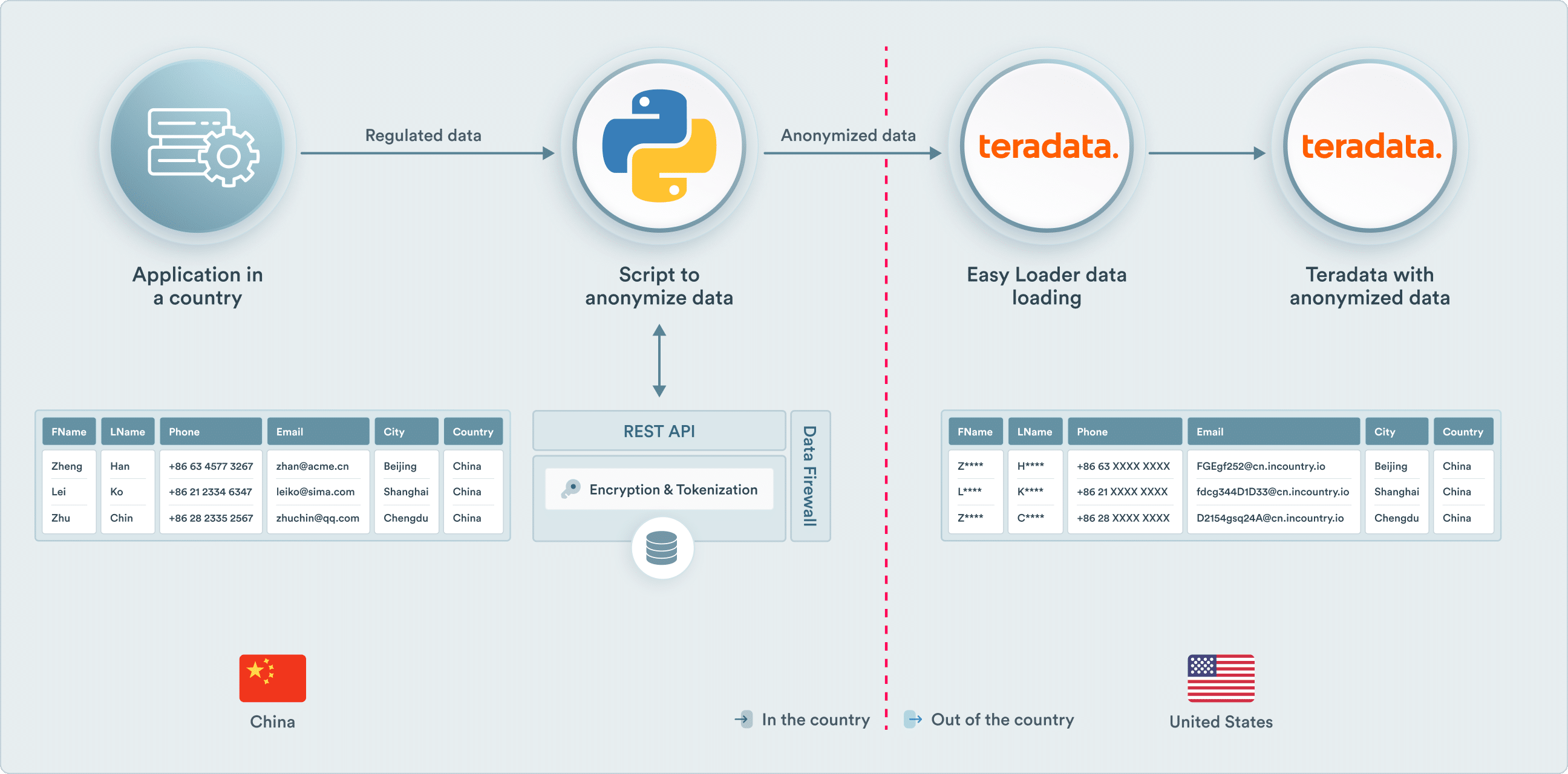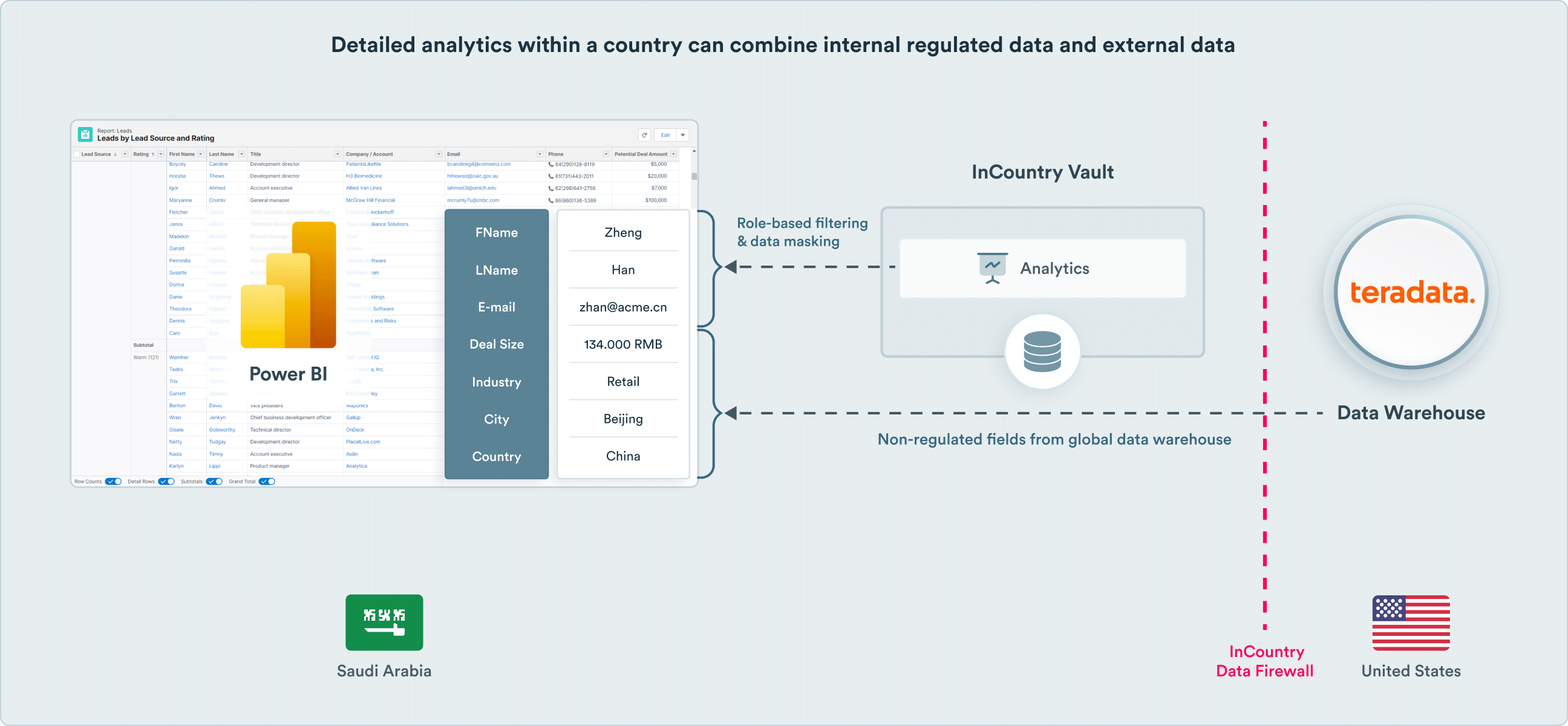
Data Residency for Teradata
Redact and anonymize regulated data from Teradata
Continue to consolidate worldwide data and maintain local compliance
Isolate regulated data from Teradata with full redaction and anonymization before data loading. Continue to gain global insights and perform local analytics by combining local regulated data with global data.
Teradata with InCountry
InCountry operates seamlessly with Easy Loader data loading. Easy-to-use Python scripts call InCountry’s point-of-presence in a country to redact regulated fields and insert anonymized values in their place. Regulated data can optionally be securely managed in the InCountry point-of-presence to perform local analytics by combining local regulated data with global data.
- Integrates seamlessly with existing Easy Loader processes
- Dynamically redact regulated fields
- Anonymize regulated data with flexible tokenization, hashing, and masking algorithms
- Full audit log

Support both local and global analytics and applications
- Global business intelligence and reporting tools continue to operate with regulated data fully masked
- Local users can create dashboards and reports using both local regulated data and data from global warehouses and data lakes
- Define granular access policies for groups of users and applications with query filters, field-level access access controls, field masks, and CRUD controls

InCountry Data Residency for Teradata
Features
- Direct integration with Easy Loader
- No changes to pipelines or workflows
- Flexible tokenization, hashing, and masking algorithms
Benefits
- Compliance with cross-border data transfer regulations
- Descope ETL, Easy Loader and Teradata from regulated data processing
- Fast setup and time-to-market
How it Works
Identify ETL processes handling regulated data crossing borders.
Employ a Python script in the respective country to invoke the InCountry REST API for redacting and anonymizing regulated data.
Maintain the usage of ETL and Easy Loader tools.
Conduct local analytics by integrating local regulated data with global datasets.
